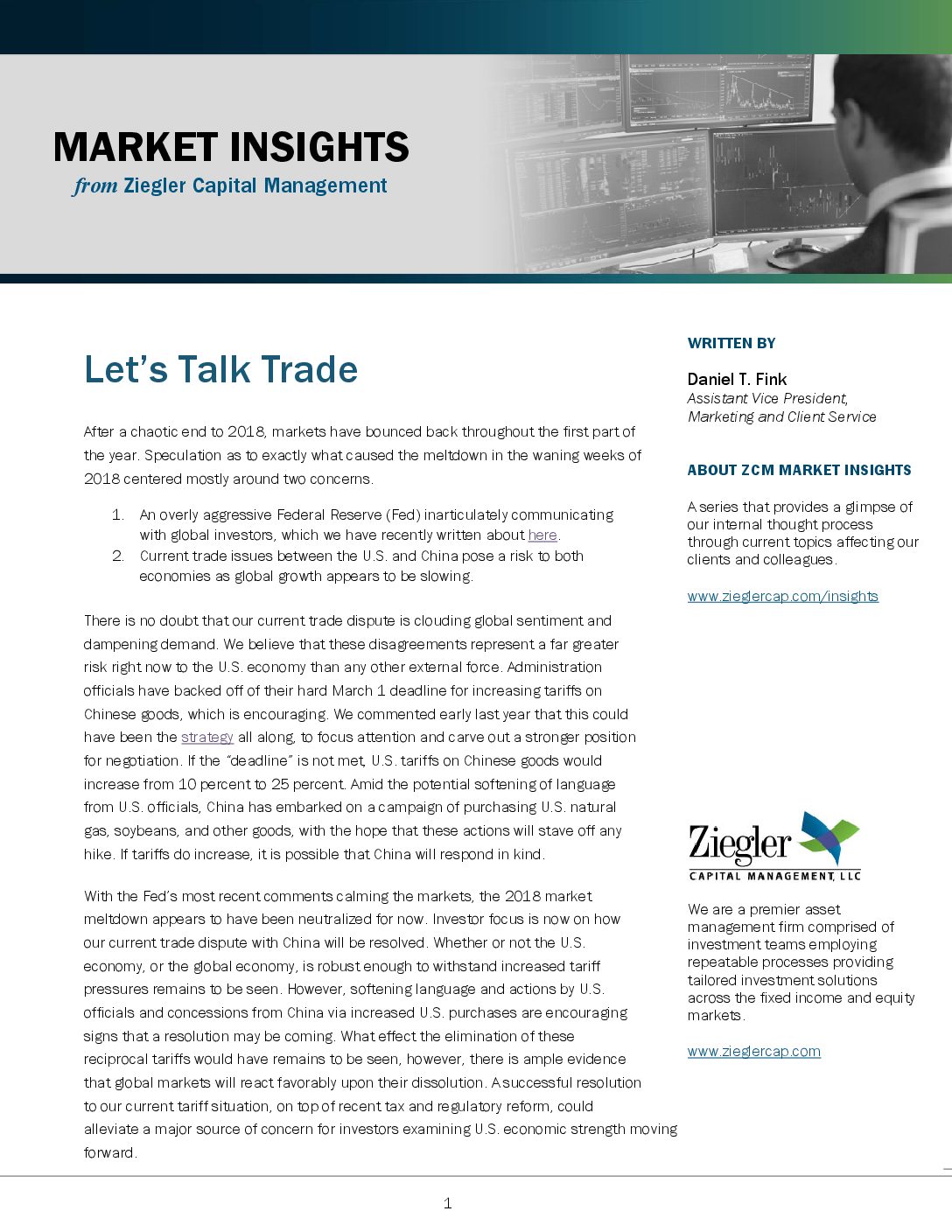
After a chaotic end to 2018, markets have bounced back throughout the first part of the year. Speculation as to exactly what caused the meltdown in the waning weeks of 2018 centered mostly around two concerns.
There is no doubt that our current trade dispute is clouding global sentiment and dampening demand. We believe that these disagreements represent a far greater risk right now to the U.S. economy than any other external force. Administration officials have backed off of their hard March 1 deadline for increasing tariffs on Chinese goods, which is encouraging. We commented early last year that this could have been the strategy all along, to focus attention and carve out a stronger position for negotiation. If the “deadline” is not met, U.S. tariffs on Chinese goods would increase from 10 percent to 25 percent. Amid the potential softening of language from U.S. officials, China has embarked on a campaign of purchasing U.S. natural gas, soybeans, and other goods, with the hope that these actions will stave off any hike. If tariffs do increase, it is possible that China will respond in kind.
With the Fed’s most recent comments calming the markets, the 2018 market meltdown appears to have been neutralized for now. Investor focus is now on how our current trade dispute with China will be resolved. Whether or not the U.S. economy, or the global economy, is robust enough to withstand increased tariff pressures remains to be seen. However, softening language and actions by U.S. officials and concessions from China via increased U.S. purchases are encouraging signs that a resolution may be coming. What effect the elimination of these reciprocal tariffs would have remains to be seen, however, there is ample evidence that global markets will react favorably upon their dissolution. A successful resolution to our current tariff situation, on top of recent tax and regulatory reform, could alleviate a major source of concern for investors examining U.S. economic strength moving forward.
Ziegler Capital Management, LLC is a wholly owned subsidiary and affiliated SEC Registered Investment Adviser of Stifel Financial Corp. This material is based upon information that we consider reliable, but we do not represent that it is accurate or complete and it should not be relied upon as such. pinions expressed are our current opinions as of the date appearing on this material only. No part of this material may be duplicated or redistributed without Ziegler Capital Management’s prior written consent. All investments involve risk, including the possible loss of principal, and there is no guarantee that investment objectives will be met. Equity securities are subject generally to market, market sector, market liquidity, issuer, and investment style risks, among other factors to varying degrees. Equity securities may rise and decline in value due to both real and perceived market and economic factors as well as general industry conditions. Indices are unmanaged, do not reflect fees and expenses, and are not available as direct investments.